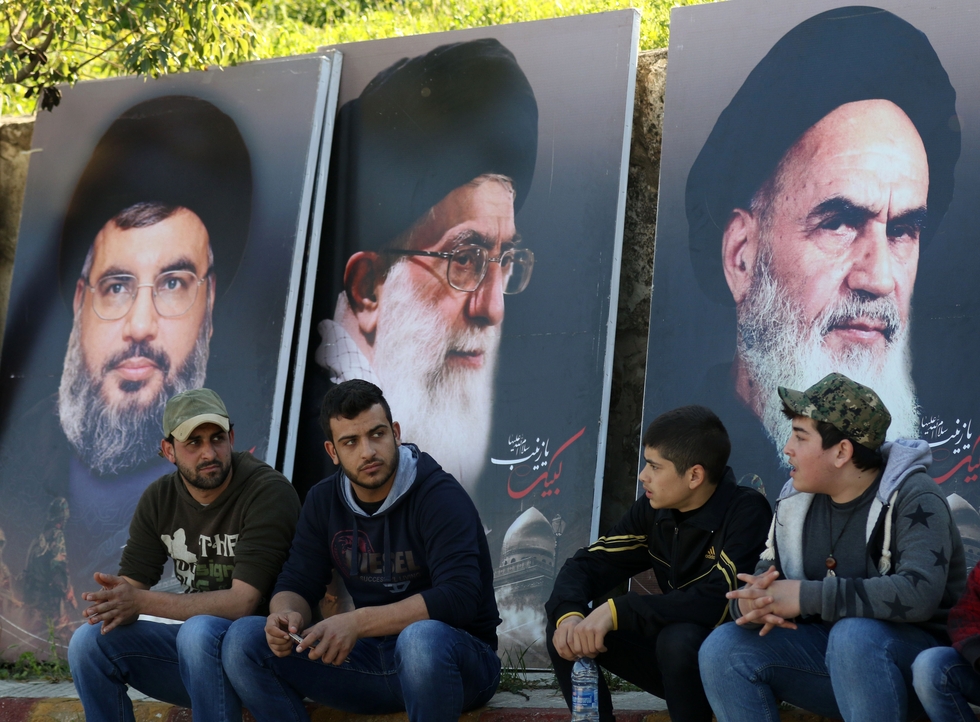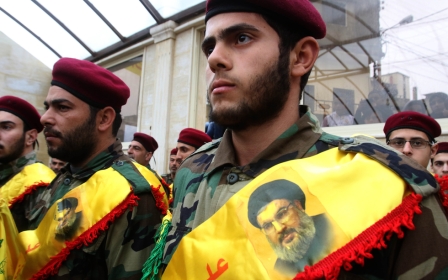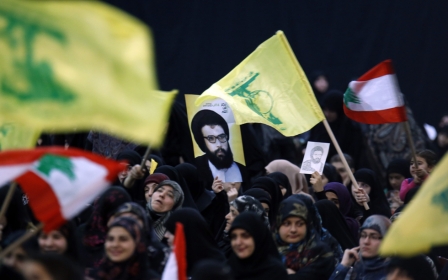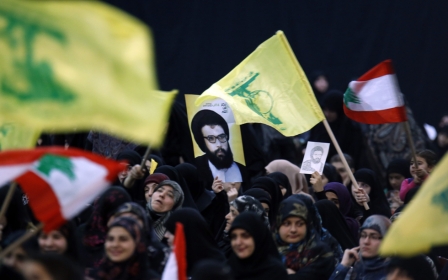ANALYSIS: GCC listing Hezbollah as terrorist a ‘harsh blow’ for Lebanon

The Gulf Cooperation Council on Wednesday declared Lebanon's Hezbollah a "terrorist" organisation, sparking concerns in Lebanon that the regional rivalry between Iran and Saudi Arabia was set to further undermine security in the small Mediterranean country.
The six-member GCC said it was forced to act because the Iranian-allied Hezbollah was involved in "hostile actions” and had attempted to “recruit the young people for terrorist acts".
GCC Secretary General Abdullatif al-Zayani said in a statement that "their terrorist acts and incitement in Syria, Yemen and in Iraq" were threatening wider regional security.
Previously Hezbollah has been quick to dismiss threats about foreign sanctions but beneath the tough talk, analysts say the GCC move is likely to have far-reaching consequences for Lebanon as a whole that could hit its anaemic economy and destabilise its fragile political peace.
“Hezbollah may act as though they don’t care but this is a harsh blow,” said Makram Rabah, a Lebanese author and journalist, adding that anyone with links to Hezbollah who had interests inside the GCC would shun the group or face being blacklisted.
Rabah said the declaration would allow the GCC to target Hezbollah funding and money laundering systems. Late last year, Lebanese banks were hit hard when the US moved to clamp down on Hezbollah's use of their services.
“The only way to really do this is to declare someone a terrorist organisation,” he said. “So on the micro and macro level this is going to have direct repercussions on the Lebanese economy, which is already suffering,” said Rabah.
Wednesday’s announcement comes a week after five out of the six GCC countries enacted restrictions on travel to Lebanon, citing security concerns.
The classification also comes shortly after Saudi Arabia cancelled $3bn in military aid to Lebanon, citing Hezbollah’s growing influence in the country.
The announcement seems to have been sparked by the Lebanese foreign minister, Gibran Bassil. Bassil, who is a member of the Hezbollah-aligned Free Patriotic Movement Party, in mid-February declined to support Saudi resolutions against Iran during two meetings of Arab and Muslim foreign ministers.
Christopher Davidson, a lecturer at Durham University and Gulf specialist, said the move was a clear shift in Saudi strategy, which until now has been “to play the formal institutions and to try and gain influence over government and the army in order to side-line Hezbollah”.
The new Gulf objective, according to Davidson, was to launch a multi-pronged attack on the Lebanese economy, reducing the influx of lucrative Gulf tourists and undermining security to make Lebanon seem even more risky to outsiders.
“It’s a way of punishing the Lebanese government and political elite for not more closely aligning with Riyadh’s position on Iran and the region,” he said.
“It is more likely now that we will see a resurgence of Sunni Islamist attacks directed at Hezbollah and possibly Lebanese government and army positions.”
Why now?
Nicholas Noe, the author of Voice of Hezbollah: The Statements of Sayyed Hassan Nasrallah, said the decision was "another brick in the wall" around the Lebanese group. It was already considered a terrorist organisation by the US, and its military wing was also declared a terrorist group by the EU in 2013.
Such opposition within the GCC could also affect the tens of thousands of Lebanese living and working in the Gulf countries, Noe said.
Lebanon has long been divided along sectarian lines and allegiances to its more powerful neighbour Damascus, with the country fighting a bloody 15-year civil war from 1975.
But since the war in Syria has escalated, so too have many of these tensions with Hezbollah sending fighters to support Syrian President Bashar al-Assad while the opposing Sunni-led and Saudi-backed March 14 has supported the opposition.
The rift has been blamed for a political deadlock in the country, with the two sides failing to agree on a new presidential candidate since Michel Suleiman stepped down in 2014. Late last year Lebanon's parliament voted to extend its own mandate until 2017 citing security concerns linked to the civil war.
In the last year, however, the balance seems to have shifted in Hezbollah’s favour, mirroring the success of Assad and his allies in Syria. Hezbollah's sponsor, Iran, has been brought in from the cold following the signing of the nuclear deal last year with the US and international partners.
And as Iran's position has grown stronger, the Gulf's has weakened – with the GCC economies hit by falling oil prices and the cost of supporting conflicts abroad.
“Overall Hezbollah is in a position where it is starting to shake off some of the constraints that it has had put on its shoulders over the last four years so [this is happening] just as it's starting to emerge from some of the burdens,” said Noe.
“This is pushback against Hezbollah’s growing regional power and its growing confidence also in Lebanon and the shaking off the constraints of the Syria war.”
Yet, few analysts believed that the GCC declaration would ignite clashes akin to those seen in May 2008 when Hezbollah marched on the streets of Beirut.
“A lot depends on how much the Saudi and Gulf monarchies want to push Hezbollah against the wall. In May 2008 the Americans and their allies decided to push Hezbollah against the wall and it was a disaster,” said Noe.
“If the monarchies choose to do that there is a strong possibility of a pushback by Hezbollah but the difference this time is there is a wider consensus against violent destabilisation at home due to the regional destabilisation that is happening.”
But unlike 2008, “Sunnis are no longer arming like they were ahead of May 2008 and this leaves Hezbollah in a pickle as they no longer have anyone to beat up and a bully always needs someone to push around,” said Rabah.
Instead, they are now in a position where they have to govern the state and try to find some kind of compromise, he said.
Conversely the same forces that are pushing the region further apart are helping Lebanon to stay together despite the outward pressure.
“How hard Saudi and its allies will press its Lebanese allies for a clean break remains to be seen but even if they want to push their allies toward a break they have less domestic Lebanese support for such a move primarily because of the greater dangers that are lurking all over Lebanon and are seen as a far greater danger,” Noe said.
Middle East Eye propose une couverture et une analyse indépendantes et incomparables du Moyen-Orient, de l’Afrique du Nord et d’autres régions du monde. Pour en savoir plus sur la reprise de ce contenu et les frais qui s’appliquent, veuillez remplir ce formulaire [en anglais]. Pour en savoir plus sur MEE, cliquez ici [en anglais].




